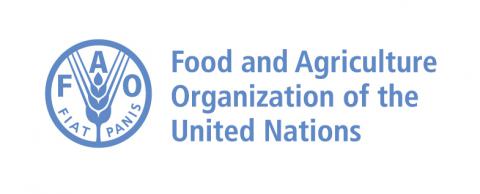FFA Conferences
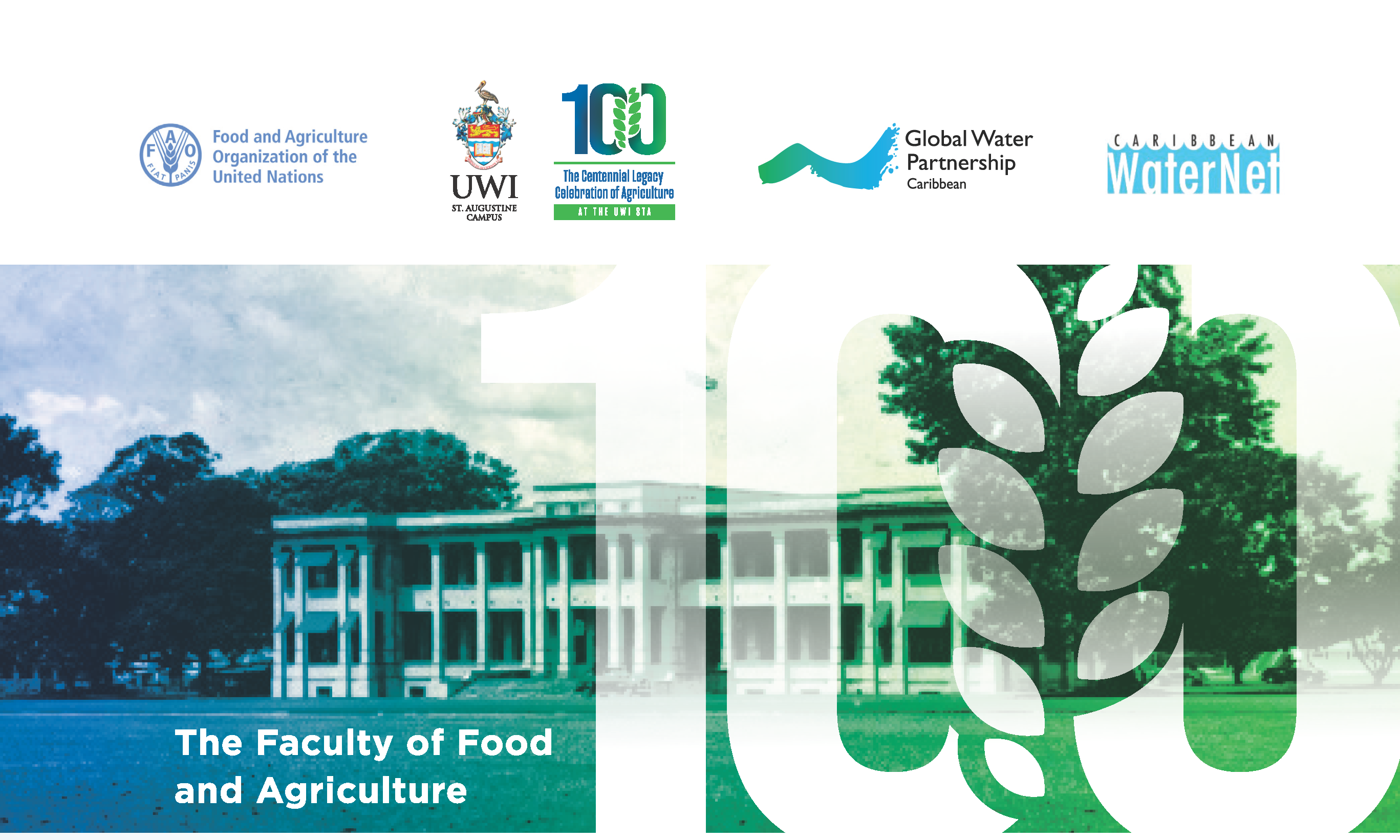
presents its
Virtual Conference
Celebrating a Hundred Years
of Agricultural Research and Innovation:
Perspectives on Tropical Food and Agriculture Systems
10th & 11th November 2021
8:00am - 2:00pm | via Zoom
Themes
- Innovative Agriculture for Sustainable Food Security
- Disaster Risk Management and Climate Resilient Agriculture
- Data, Information and Communication Technology
- Governance and the Enabling Environment in Agriculture
- Enhancing Life and Livelihoods in Agriculture
Target Audience
- Agricultural Practitioners
- Academics/Researchers
- Students
- State agencies
- Community Based Organizations
- Non-Governmental Organizations
- Regional and International Organizations
- Private Sector
Conference Objectives
- To showcase contemporary food and agricultural research and innovations relevant to Caribbean SIDS
- To collate and share scientific data and research experience that can inform future research, development and decision making in Caribbean agriculture, food systems and related sectors.
- To identify, strengthen and promote collaboration and networking among regional, global scientists and stakeholders.
- To facilitate knowledge sharing amongst stakeholders
- To enhance effectiveness of academic research towards decision making and policy development.
Specifically, the conference will look at the following thematic areas which have impacted and shaped the Agri-Food Systems and related sectors in the Caribbean and the world.
Dr Renata Clarke
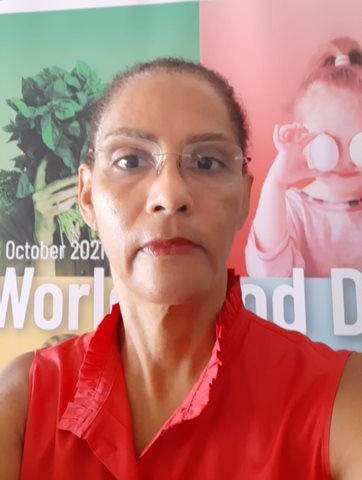
Dr. Renata Clarke has worked at the FAO Headquarters in the area of Food Safety for the past 22 years. She was Head of the FAO Food Safety and Quality Unit from 2011 to 2019, when she assumed the position of FAO Sub-regional Coordinator for the Caribbean.
In her capacity as Head of the FAO Food Safety and Quality Unit, Dr. Clarke led the Organization’s Programmes in developing the Member States’ capacities to assure the safety of food supplies. She also provided strategic oversight to the FAO Programme for the Provision of Food Safety Scientific Advice, which undertakes the risk assessments that underpin Codex standard setting and food safety policy in many countries.
In her current role as Sub-regional Coordinator for the Caribbean, Dr. Clarke oversees the FAO Programme of work across the 13 English-speaking countries of the Caribbean. She is responsible for the strategic visioning for FAO’s programmes, for ensuring effective collaboration with regional bodies and managing a Multi-Disciplinary Team of Experts that supports programme implementation.
Dr. Clarke holds a PhD in Food Science and Technology from the Technical University of Nova Scotia and a Bachelor of Science in Chemistry from the University of the West Indies.
Shakuntala Haraksingh Thilsted
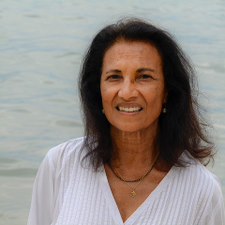
Shakuntala Haraksingh Thilsted is the Global Lead for Nutrition and Public Health at WorldFish, a One CGIAR entity. She was awarded the 2021 World Food Prize for her ground-breaking research, critical insights, and landmark innovations in developing holistic, nutrition-sensitive approaches to aquatic food systems, including aquaculture and capture fisheries. She was awarded the 2021 Arrell Global Food Innovation Award for research innovation. She played a key role in the development of the WorldFish 2030 research and innovation strategy: Aquatic Foods for Healthy People and Planet. She is a member of the Steering Committee of the High Level Panel of Experts on Food Security and Nutrition (HLPE) of the United Nations Committee on World Food Security (CFS) and Vice Chair of the UN Food Systems Summit 2021: Action Track 4 - Advance Equitable Livelihoods, and also a Food Systems Champion. She plays a pivotal role in promoting aquatic food systems for nourishing nations and achieving the Sustainable Development Goals (SDGs). Shakuntala holds a PhD from the Royal Veterinary and Agricultural University (presently: Faculty of Life Sciences, University of Copenhagen), Denmark. She holds an Honorary Doctorate from the Swedish University of Agricultural Sciences.
Day 1 - 10th November 2021
Chair: Dr. Ronald Roopnarine
9:00am - 9:30am
Opening Ceremony
Welcome Remarks
Dr. Ronald Roopnarine
Chair
Opening Remarks
Dr Mark Wuddivira
Dean
Faculty of Food and Agriculture
The University of the West Indies, St Augustine Campus
Keynote Speaker / Formal Opening Declaration
Dr. Renata Clarke
Remarks
Bruce Lauckner
Editor in Chief
Tropical Agriculture Journal
9:30am - 11:30am
FAO Session -Innovation in Agriculture
Insect Production as Animal Feed
MODERATORS: Reuben Robertson and Shaun Baugh
Welcome
Reuben Robertson
FAO Representative to Trinidad and Tobago and to Suriname
Self-Introductions by Panellists
Overview of the technology and its global relevance
Daniela Battaglia
Livestock Production Officer
FAO, Rome
Round of presentations by Panellists
Opportunities and challenges for growth of insect production (for investors and for governments)
Damian Malin
Venturing Projects Director
Fera Science Ltd, U.K
Why we have engaged in insect rearing; why and how we are promoting modular approaches to production of insects as a feed ingredient
Tom Van Ravensberg and Koen Volkers
Raven Feed
The Netherlands
Current trends in insect production as animal feed ingredient in NA and current issues (technical and political)
Wendy Lu McGill
Interim Executive Director
North America Coalition for Insect Agriculture (NACIA), USA
Current trends in insect production as animal feed ingredient in Europe and current issues (technical and political)
Constantin Muraru
Communications and research Director
International Platform of Insects for Food and Feed (IPIFF)
Belgium.
Q/A and discussion
Moderated by Shaun Baugh
Programme Manager for Agriculture and Agri-business, CARICOM Secretariat.
Closing comments
Renata Clarke,
FAO Sub-Regional Coordinator for the Caribbean
11:30am -11:40am
Poster Display IA – Break
11:40am -12:55pm
Thematic Presentations: Innovative Agriculture for Sustainable Food and Nutrition Security 1
Moderator: Prof. Duraisamy Saravanakumar
Leaf Area Index and Light Interception response to canopy level and canopy orientation of Juvenile Breadfruit (Artocarpus altilis Forsberg) Cultivars on Trinidad
Michael Gloster
Aquaponics an Innovative Solution to Food Security in SIDS: A Review of System Types and their Potential as Sustainable, Climate-smart Farming Techniques for Caribbean
Rakesh Bhukal
Relationship Between Yield and Physical Quality Characteristics In Dwarf Vegetable Pigeonpeas
Albertha Joseph
A quantitative analysis of poultry farms’ vulnerability to Avian Influenza in Trinidad, Republic of Trinidad and Tobago
Romano Macfarlane
Facilitated Q and A
Parallel Thematic Presentations: Enhancing Life and Livelihoods in Agriculture
Moderator: Dr. Oral Daley
Competitive Analysis of Crops Cultivated in Plant Factories to Reduce Food Importation: Romaine Lettuce and Strawberries
Nkosi Felix
The Importance and Efficacy of a Sanitation Protocol in a Meat Processing Plant
Frances M. Roberts
Photovoice data collection method, building community-based nutrition sensitive value chains and healthy moms in Nevis
Arlette Saint Ville
Facilitated Q and A
1:00pm - 2:00pm
Thematic Presentations: Innovative Agriculture for Sustainable Food and Nutrition Security 2
Moderator: Dr. Lystra Fletcher-Paul
An evaluation of Pet Shops in Trinidad, Republic of Trinidad and Tobago for the introduction of Highly Pathogenic Avian Influenza
Romano Allister Macfarlane
The ability of the Poultry Surveillance Unit (PSU), Animal Production and Health Division, Ministry of Agriculture, Land and Fisheries to achieve early detection of Avian Influenza introduction into Trinidad
Romano Allister Macfarlane
Phytostimulatory effects of Trinidadian seaweeds in tomato and sweet pepper
Omar Ali
Facilitated Q and A
Day 2 - 11th November 2021
Chair: Dr. Gaius Eudoxie
8:35am - 8:40am
Welcome
Dr. Gaius Eudoxie
Chair
8:40am – 9:00am
Keynote Speaker
Dr. Shakuntala Haraksingh Thilsted
9:00am - 10:15am
Thematic Presentations: Disaster Risk Management and Climate Resilient Agriculture
Moderator: Dr. Gabriel Thongs
Building climate resilience agriculture using smart vegetation maps and landscape level data in Small Island Developing States.
Gabriela Sewdhan
Prioritizing Climate Smart Agriculture Practices in Trinidad: A Multistakeholder Approach
Brandon Murphy
Agricultural Water Resource Management in the U.S. Virgin Islands
Megan Donovan
Exploring Farmers Perception of CSA Technologies: A Case of Caura Farmers Trinidad
Brandon Murphy
Facilitated Q and A- Moderator
10:15am - 10:30am
Poster Display - Break
10:30am - 11:45am
Thematic Presentations: Data, Information and Communication 1
Moderator: Dr. Arlette Saint Ville
Analytics in Agriculture: GreenAlysis System in a Dwarf Pomme Cythere (Spondias dulcis Parkinson) Orchard in Trinidad and Tobago
Travis G. Paul
Social Media for Augmenting Virtual Communities of Practices Among Agricultural Extension and Advisory Professionals.
Jeet Ramjattan
An Historical, Biographical, Social and Disciplinary account of the contribution of ICTA-UWI Agriculture (1921 to 2021) to the Caribbean and World Food and Agriculture
Gary Wayne Garcia
A Virtual Transplant: Moving Plant Clinics from Face to Face to Online – The Extension Training and Information Services Division of Trinidad and Tobago Experience
Roshni Sita Ramsingh
Facilitated Q and A- Moderator
11:45am - 1:00pm
Thematic Presentations: Data, Information and Communication 2
Moderator: Dr. Selby Nichols
Advancements in ICT Adoption in Extension: Synthesizing Contemporary Research in the CARICOM Region
Professor Wayne Ganpat
Assessment of Risk Communication: Mitigation of Contamination of Fruits and Vegetables due to Flooding in Plum Mitan Sangre Grande, Trinidad and Tobago
Andre John
Digitalization of Caribbean Extension: Regional Perspectives, Challenges and Opportunities
Jeanelle Joseph
The Open School of Tropical Animal Science and Production (OSTASP) 2001 to 2021
Stacey-Marie Syne
Facilitated Q and A- Moderator
1:00pm - 1:15pm
Day 2 Summary
1:15pm - 1:30pm
Closing Remarks
Innovation in Agriculture
Presenter Bios
Damian Malins
Venturing Projects Director
Fera Science Ltd.
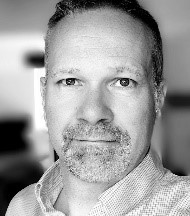
Fera Science applies Original Thinking to address food system challenges in order to promote sustainable global food production. Damian supports Fera’s engagement with investors looking at the agri-food sector, and work in developing go-to-market strategic propositions with spin-outs, start-ups and investors, alongside their commercial and government clients and partners.
Managing a broad portfolio of strategic and potential spin-out projects, Damian works closely alongside the Fera Science community and specialists with current focus on Insect novel protein feed and food industrial solutions & insect waste reduction industrial solutions.
He is leading a range of international commercial and public sector research collaborations and evidence/horizon scan studies, and was the lead author on a UK DIT sponsored Guide to Insect Bioconversion and Farming in the UK for future operators and investors into the industry. Damian is also responsible for the implementation of a $USD 1.4 million capital investment to build an industrial insect bioconversion facility at Fera Science, and he is also working closely with insect companies in the UK, Europe, Malaysia, and Indonesia.
Damian’s responsibilities also include supporting commercial and research collaborations in the following areas - seed crop assurance projects and phytosanitary assurance digital tools and analytical services; landscape level environmental sensing and surface ground water real-time monitoring; food innovations and fraud warning AI powered forecasting; bee therapeutics and identified compounds to treat serious honey bee diseases; and In-field detection of disease/antimicrobial resistance Fungal based bio-pesticides.
Daniela Battaglia
Food and Agriculture Organization of the United Nations (FAO)
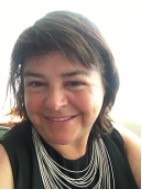
Daniela Battaglia is Livestock Production Officer at the Food and Agriculture Organization of the United Nations (FAO). Within FAO, she is responsible for the feed safety programme, coordinator of the FAO Sustainable Livestock Technical Network and member of the FAO Working Group on Antimicrobial Resistance. Daniela, holds an M.Sc. in Agricultural Science and another in Tropical Animal Health and Production. Before joining FAO in 2001, Daniela has worked for nine years for the European Commission and has been based in in several countries: e.g. Belgium, UK, Peru, Suriname, Nicaragua, Costa Rica, Guatemala, Israel and Tunisia.
Reuben Robertson
Representative, Trinidad and Tobago and Suriname
Food and Agriculture Organization of the United Nations (FAO)
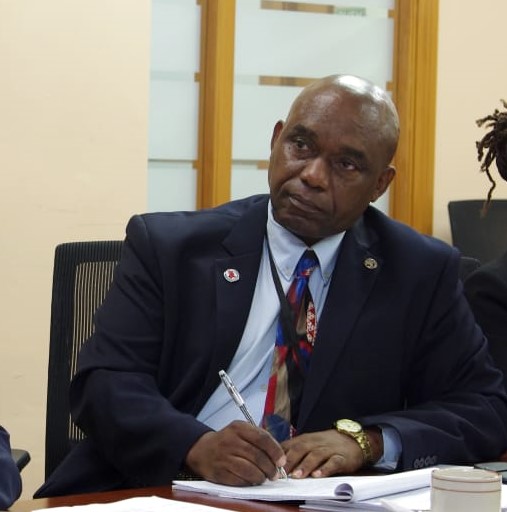
Mr. Reuben Robertson is the FAO Representative for Trinidad and Tobago and Suriname. He commenced duties at the FAO Country office in Port of Spain in December 2018.
Mr. Robertson, a national of St. Vincent and the Grenadines, holds Master of Science in Agricultural Economics and Bachelor of Science degree in Agriculture from The University of West Indies, St. Augustine, Trinidad and Tobago and a Diploma in Agriculturefrom theEastern Caribbean Institute of Agriculture and Forestry, Trinidad and Tobago. He is completing Ph.D. studies in Biodiversity, Vulnerability and Adaptation to Climate Change with the University of Guyana.
Dr Renata Clarke
Sub-regional Coordinator for the Caribbean
Food and Agriculture Organization of the United Nations (FAO)

Dr. Renata Clarke has worked at the FAO Headquarters in the area of Food Safety for the past 22 years. She was Head of the FAO Food Safety and Quality Unit from 2011 to 2019, when she assumed the position of FAO Sub-regional Coordinator for the Caribbean.
In her capacity as Head of the FAO Food Safety and Quality Unit, Dr. Clarke led the Organization’s Programmes in developing the Member States’ capacities to assure the safety of food supplies. She also provided strategic oversight to the FAO Programme for the Provision of Food Safety Scientific Advice, which undertakes the risk assessments that underpin Codex standard setting and food safety policy in many countries.
In her current role as Sub-regional Coordinator for the Caribbean, Dr. Clarke oversees the FAO Programme of work across the 13 English-speaking countries of the Caribbean. She is responsible for the strategic visioning for FAO’s programmes, for ensuring effective collaboration with regional bodies and managing a Multi-Disciplinary Team of Experts that supports programme implementation.
Dr. Clarke holds a PhD in Food Science and Technology from the Technical University of Nova Scotia and a Bachelor of Science in Chemistry from the University of the West Indies.
Shaun Baugh
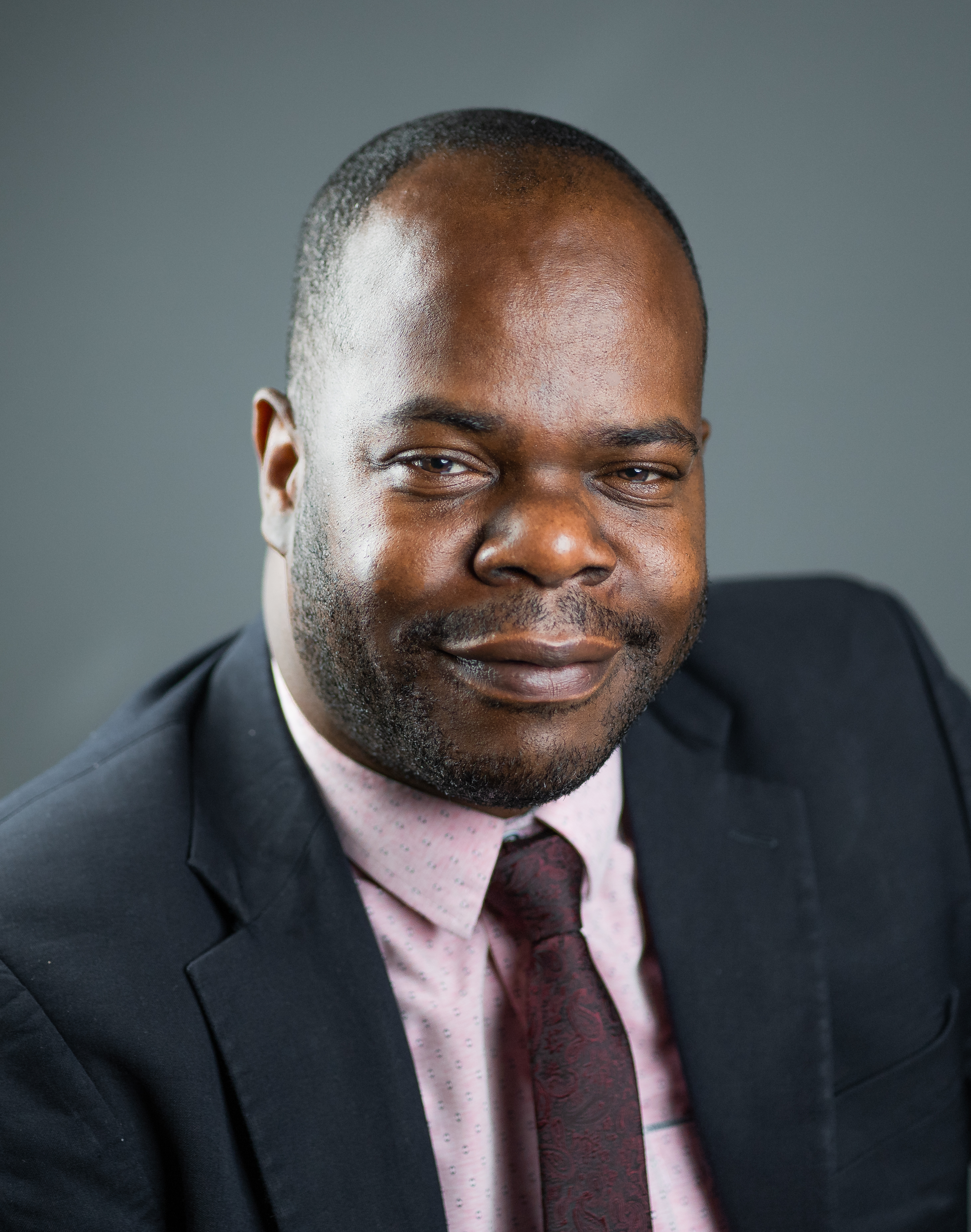
Programme Manager- Agriculture and Agro-Industrial Development
CARICOM Secretariat &
Principal Director-Economic Planning and Policy
The Ministry of Industry, Commerce, Agriculture and Fisheries- Jamaica
Mr Baugh holds a MSc in Agricultural and Rural Development from the UWI St. Augustine and a BSc in Management Studies and Political Science from UWI Mona and has special interests in Farming, Rural Development, Sports, Research, youth Development and Agri-Business and Policy Development
Constantin Muraru
Communication and Research Manager
International Platform of Insects for Food and Feed

Constantin Muraru is the Communication and Research Manager of the International Platform of Insects for Food and Feed (IPIFF), the umbrella association of the European insect sector in EU's capital, Brussels. IPIFF is an EU non-profit organisation that represents the interests of the insect production sector towards EU policymakers, European stakeholders and citizens. IPIFF's main mission is to promote the wider use of insects as a complementary or new source of protein for human consumption and animal feed through a continuous dialogue with European institutions (i.e. the European Commission, the EU Member States authorities, the European Parliament and the European Food Safety Authority). Notably, IPIFF centres its activities around advocating for appropriate EU legislation applicable to insect production.
Having a background in environmental technology and international relations, Constantin is fascinated by solutions inspired from nature - such as insect farming - and their contribution to reducing the footprint of food production activities. In the IPIFF Secretariat, he works on coordinating the communication activities of IPIFF, as well as on facilitating a continuous dialogue with the research community. At international level, Constantin was also involved in organising IPIFF's involvement in the United Nations Food Systems Summit and he is the IPIFF delegate in the collaboration with other insect regional associations.
Wendy Lu McGill
Interim Executive Director
North American Coalition for Insect Agriculture (NACIA)
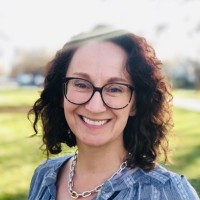
Wendy Lu McGill is the Interim Executive Director of the North American Coalition for Insect Agriculture (NACIA). With a background in sociological research in international development and intercultural communication, Wendy Lu brings a global perspective and deep understanding of the who, what, when, how and why of insect agriculture.

Tom van Ravensberg
CEO & Co-founder
Ravenfeed
Tom is the co-founder of RavenFeed and holds the CEO position. Besides the challenges at RavenFeed, Tom is captain for a major Dutch airline. In 2004 he started at Oxford Aviation Training to become a professional airline pilot and finished in 2006 with flying colours. Flying around this beautiful world, Tom realised that major change is needed to keep this planet habitable. One morning in 2020 Tom observed how quickly larvae grew on residual biological waste in the summer, when his bio waste container at his home overflooded with larvae. When he overcame his disgust he came to the realisation that insects are the missing link in our food chain. From there he contacted Koen to set up a company focussed on making insect production accessible. In his free time Tom loves to kitesurf and run in the dunes of the Dutch coast.
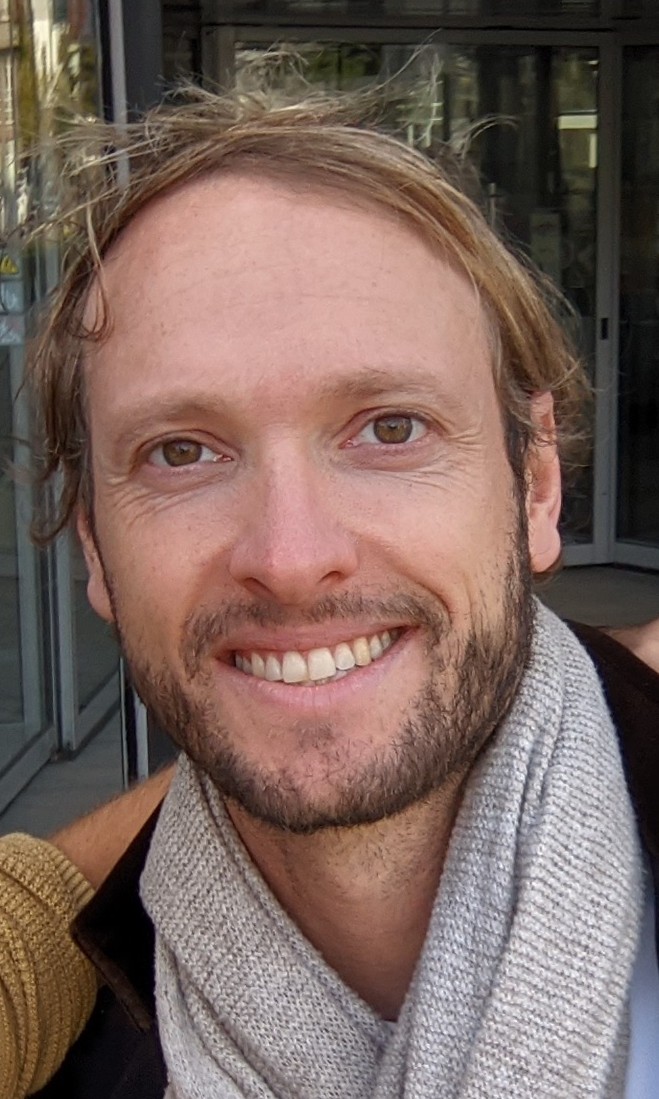
Koen Volkers
CFO & Co-founder
Ravenfeed
Koen the co-founder and CFO of RavenFeed. Besides his passion for RavenFeed, Koen is an established airline pilot for a major Dutch airline for 16 years. He is a senior instructor training other aspiring pilots. During 4 years Koen led the pilots works council at KLM Cityhopper, with his main agenda’s: Sustainability and Digitization. Inspired by his two children, he has an enthusiastic drive to build a sustainable planet. Koens hobbies are battling the Dutch mountains with his racing bike and organising sustainable BBQ’s.
Day 1
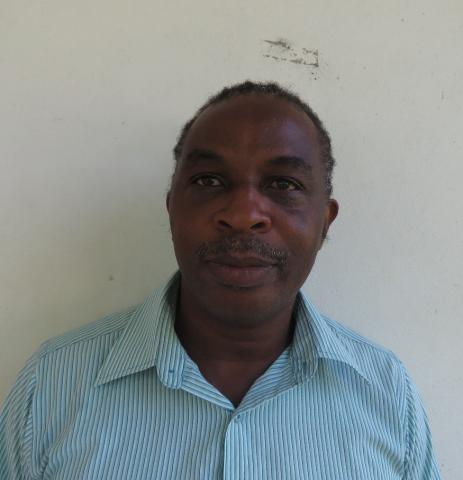
Michael Gloster
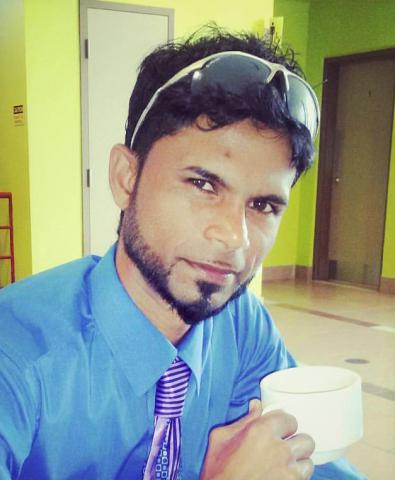
Rakesh Bhukal
Dr Albertha Joseph-Alexander
Romano Macfarline
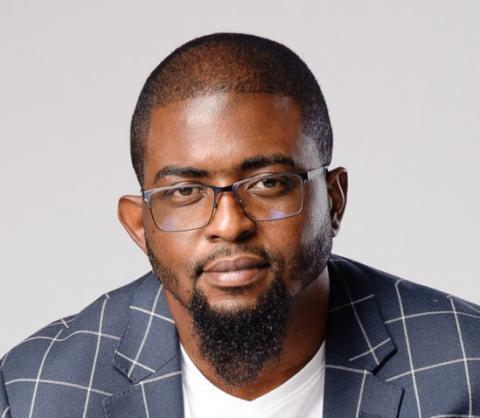
Nkosi Felix
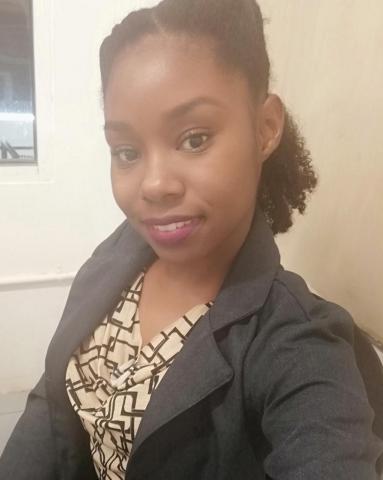
Frances M Roberts
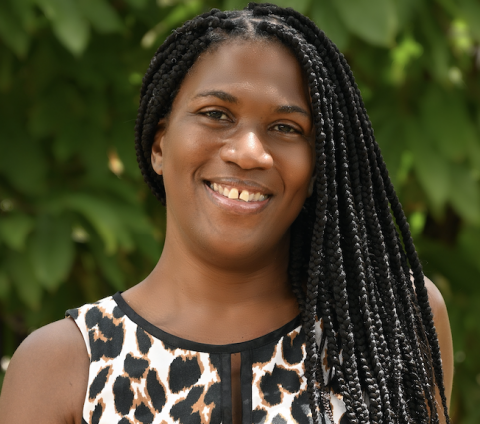
Dr Arlette Saint Ville
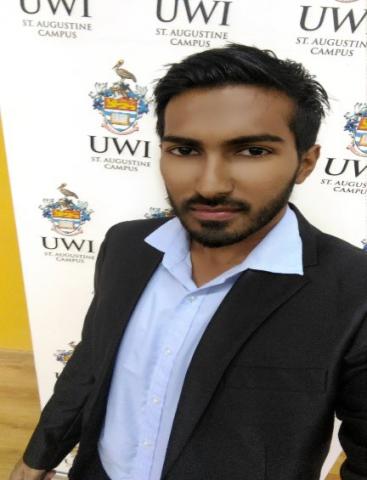
Dr Omar Ali
Day 2
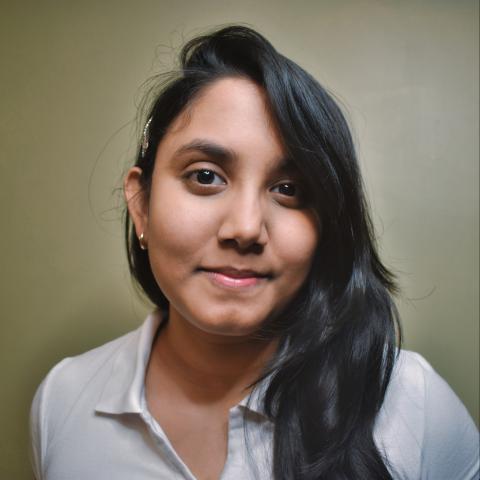
Gabriela Sewdhan
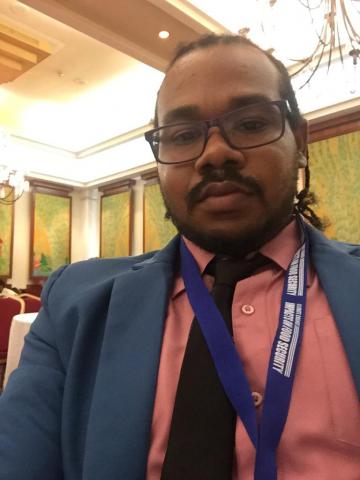
Brandon Murphy
Megan Donovan
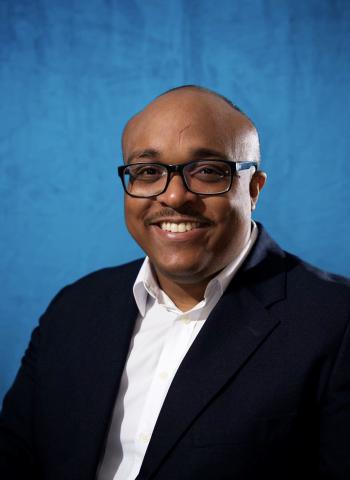
Travis G Paul

Jeet Ramjattan
Prof. Gary Wayne Garcia
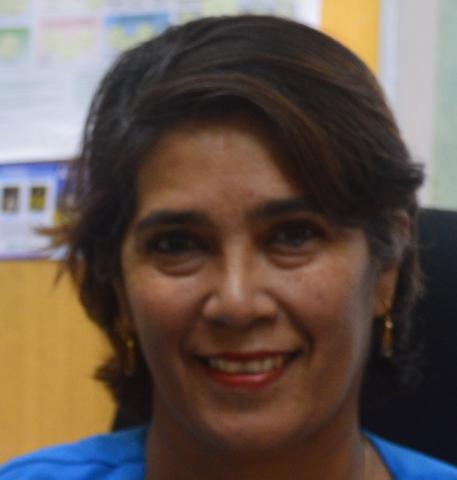
Roshni Sita Ramsingh
Prof. Wayne Ganpat
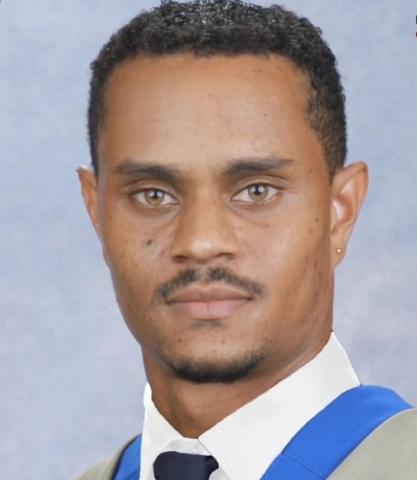
Andre John
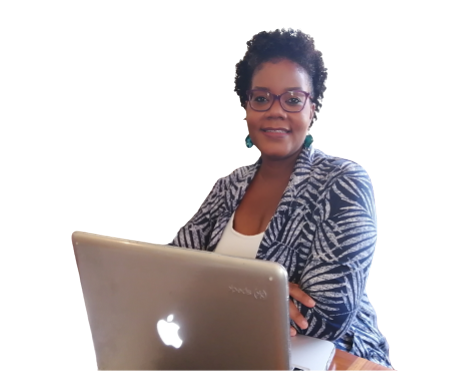
Dr Jeanelle Joseph
Stacy Marie Syne
Chairs
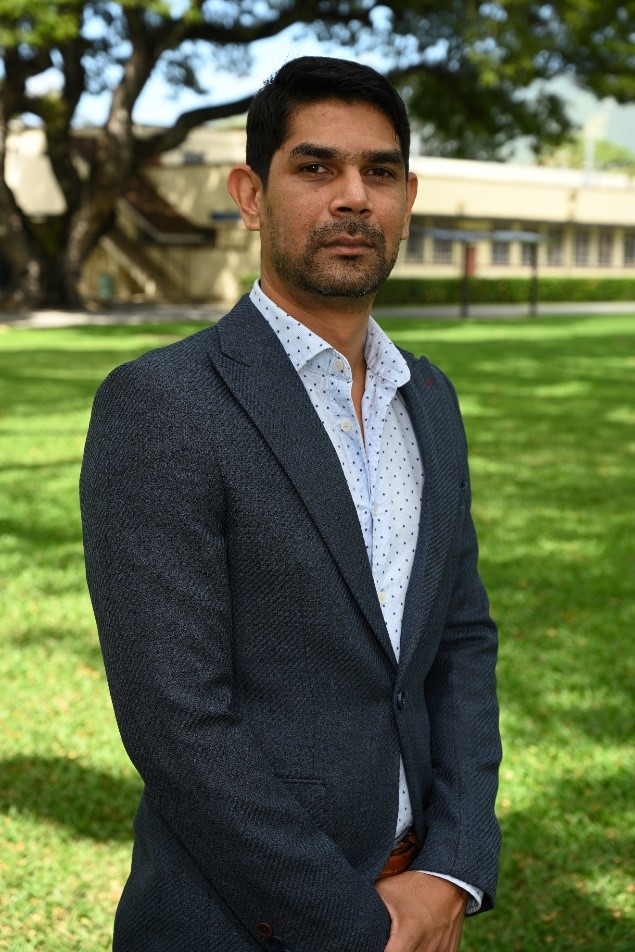
Dr. Ronald Roopnarine
Chair: Day One
Lecturer: Sustainable Land and Water Management and Disaster Risk Resilience
FFA, UWI
Dr. Ronald Roopnarine is an early career researcher and academic with a thorough background in Disaster Risk Resilience and Sustainable Land and Water Resource Management. Presently, Dr. Roopnarine is a Lecturer in the Faculty of Food and Agriculture, University of the West Indies, St. Augustine Campus (FFA, UWI) responsible for teaching and development of courses related to Agri-environmental Disaster Risk and Climate Resilience. He is also the Network Manager of Caribbean WaterNet, (Caribbean arm of CapNet UNDP) and an international consultant for various UN agencies. Thus far he has amassed significant experience in Integrated Water Resources Management and Climate Change Adaptations, with specific focus on Caribbean Small Island Developing States.
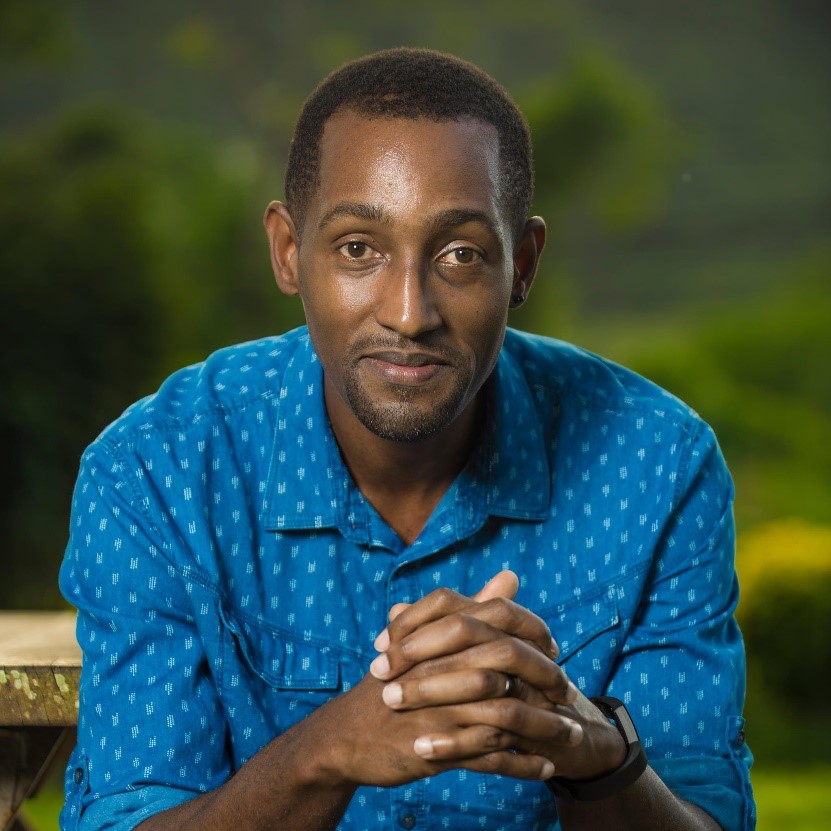
Dr. Gaius Eudoxie
Chair: Day Two
Senior Lecturer and Deputy Dean Outreach and Internationalization
FFA, UWI.
Dr. Eudoxie is a Soil and Water Scientist with experience in soil descriptions and interpretations, tropical soils properties and management including volcanic soils and soil sampling and laboratory analysis. He has worked as a regional consultant on projects on soil and water management, particularly fertility, degradation, rehabilitation and risk assessment. He serves as the science advisor to the Partnership Initiative for Sustainable Land Management (PISLM) and Vice President of the Latin America Regional Soil Partnership. Dr. Eudoxie has managed soil based projects and supervised several graduate students in the discipline.
Moderator Bios
Dr. Gabrielle Thongs

Dr. Thongs is a lecturer at the Department of Geography, UWI, St. Augustine, where she has been a faculty member since 2016. She lectures the Natural Hazards, Urban Planning, and GIS Modelling courses. Dr. Thongs has worked and continues to actively collaborate on several regional and local consultancy projects relating to disaster risk resilience (DRR), social vulnerability, sustainable development, and geoinformatics systems. Her future research plans are aimed at developing approaches to effectively promote disaster risk reduction and sustainable land management practices in the Caribbean.
Dr. Oral Daley

Dr. Oral Daley is a researcher and educator with professional experience in the areas of agricultural production, food and quality management and education. He holds an ASc. and BSc. in Agriculture and PhD. in Crop Science. Presently, Dr. Daley is Lecturer in the Department of Food Production, Faculty of Food and Agriculture, The University of the West Indies, St. Augustine Campus, Trinidad, and Tobago. His research focus is on crop germplasm characterization, evaluation, and conservation with the aim of harnessing the genetic variation in underutilized tropical food crops for long-term genetic gain and diversity, and to understand the genetic structure of complex traits that influences quality and yields to advance food and nutrition security in the Caribbean.
Dr. Selby Nichols

Dr. Selby Nichols is currently Senior Lecturer and Deputy Dean, Graduate Studies and Research at the Faculty of Food and Agriculture. For the e for the past 20 years, he has taught courses at both the undergraduate and postgraduate and successfully supervised several masters and doctoral graduates. He holds a BSc. (Hons) in Biology and Chemistry from the University of the West Indies (UWI) Cave Hill, postgraduate diploma and PhD in Nutrition from Tropical Medicine Research Institute, Faculty of Medical Sciences (UWI) Mona. Dr. Nichols also holds a MSc. in Epidemiology from the London School of Hygiene and Tropical Medicine, University of London. He holds membership in several professional societies including the Royal Society of Biology, American College of Epidemiology and the American Society for Nutrition. Dr. Nichols is a chartered biologist and Fellow of the World Cancer Research Fund International. He interests include issues related food and food systems in health and disease states.
Dr. Arlette Saint Ville

Dr. Arlette Saint Ville is a lecturer in the Geography Department, at The University of the West Indies, St. Augustine Campus, Trinidad and Tobago. Her research centers around food and nutrition security, and explores the interplay between food insecurity, natural resource governance and social capital. She completed a PhD in Natural Resource Sciences from McGill University and used mixed-methods to explain why scientific advances in agriculture, food and the environment have not translated into sustainable food and nutrition security outcomes for the Caribbean as part of the IDRC-funded McGill/UWI CARICOM Project.
Her research has been published in peer reviewed journals such as Food Policy, Food Security, Regional Environmental Change, Rural Society, and Society and Natural Resources and research covers diverse scales (international, regional, community) ranging from Central Asia, Latin America and the Caribbean, to Bangladesh, Brazil and Saint Lucia).
For twelve years preceding her doctoral studies, Dr. Saint Ville was an independent international development consultant, successfully undertaking high-level, short-term assignments for diverse agencies across the Caribbean region.
Prof. Duraisamy Saravankumar
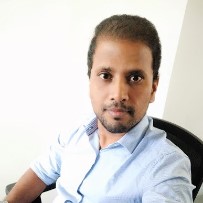
Saravanakumar (Sara) is a Professor of Plant Pathology and Head of the Department of Food Production at the Faculty of Food and Agriculture, The University of the West Indies, St Augustine Campus, Trinidad. He holds his B.Sc in Agriculture, M.Sc and Ph.D. in Plant Pathology from Tamil Nadu Agricultural University, India. He did his postdoc at the University of Torino, Italy on postharvest diseases. His present research includes the development of biologicals for management of plant diseases suited for tropical, sub-tropical and temperate regions and molecular techniques for detection of quarantine pathogens. He has published more than 60 research papers in peer reviewed journals with a Google H index of 24 and citations of more than 2500. He is one of the topic editors for Frontiers issue in Plant Growth Promoting Microorganisms for Sustainable Agricultural Production. He serves as an International Consultant for the Food and Agriculture Organization of the United Nations to develop the certification protocol for production of quality and disease free seed planting materials in ginger and turmeric in Jamaica.
Dr. Lystra Fletcher-Paul
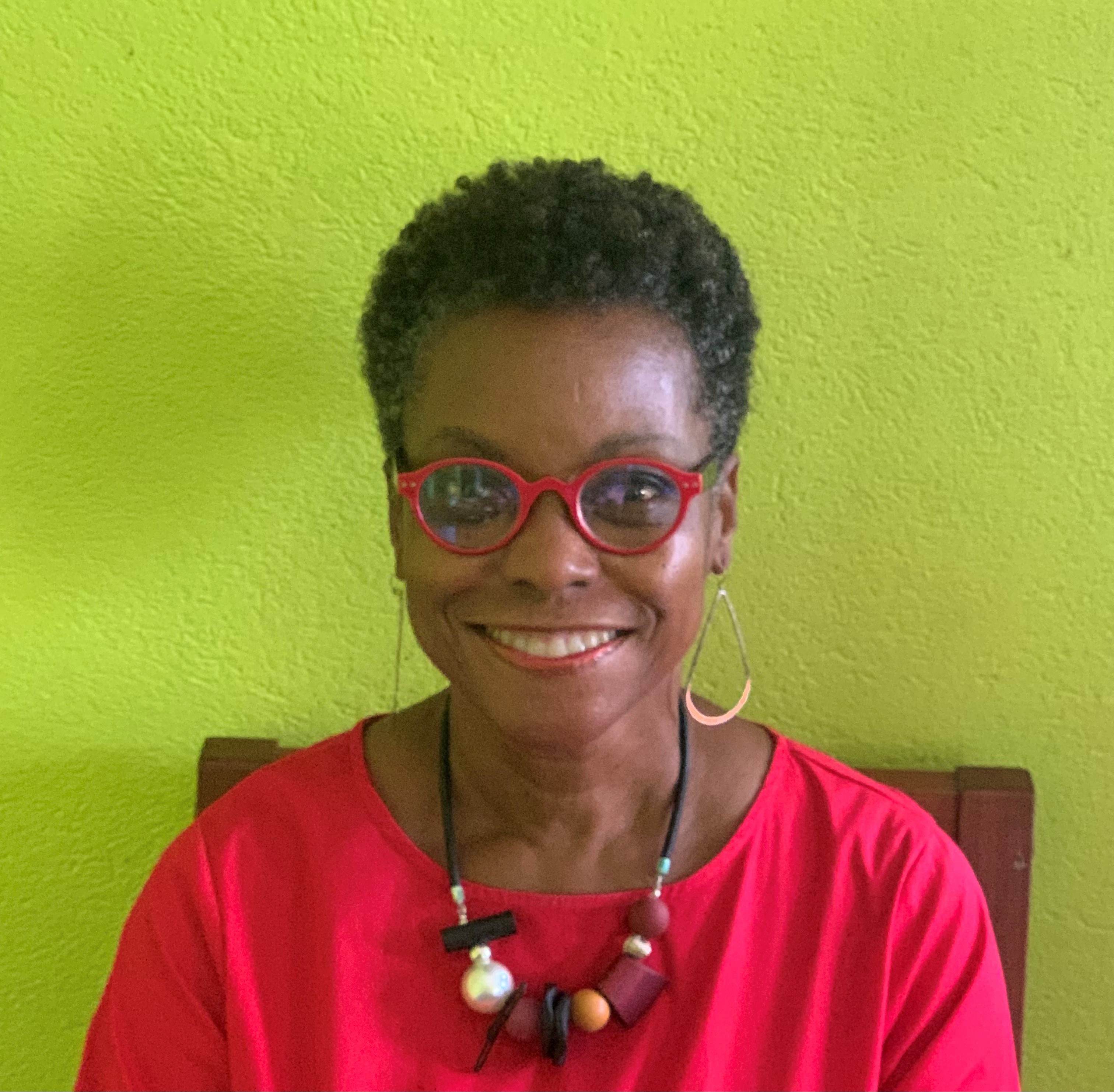
Dr. Fletcher-Paul holds a Bachelor of Science degree, First Class Honours, in Agriculture from the University of the West Indies, St Augustine, Trinidad and a Ph.D in Biometrics and Plant Science from the University of British Columbia, Vancouver, Canada. She has over thirty years of experience working in the agriculture sector, mainly across Latin America and the Caribbean but also in South-East Asia and East Africa. In the Caribbean she has worked with the Agricultural Development Bank, the University of the West Indies, the Interamerican Institute for Cooperation in Agriculture (in Trinidad and Costa Rica), the Caribbean Agricultural Research and Development Institute in St Lucia and the Food and Agriculture Organization of the United Nations in Italy, Barbados, Guyana and Trinidad and Tobago. Her most recent position at FAO was Subregional Coordinator for the Caribbean. On retirement from the FAO in 2018, Dr. Fletcher-Paul returned to the Faculty of Food and Agriculture of UWI where she currently serves as lecturer in Biometrics.





